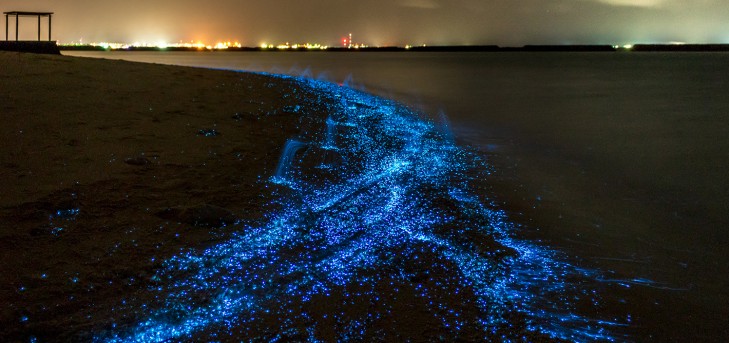Algae Could Cure Surfing’s Most Toxic Secret
We all want to live in a world where our consumer goods are made from sustainable raw materials and thanks to a group of science students from UC San Diego, that reality is one step closer. The team of undergraduate chemists and biologist set out to solve a fundamental problem in materials chemistry, and in the process invented the world’s first algae-based surfboard.
The problem
We live in a world that is fundamentally dependent on fossil fuels for everything, from the food we eat to the clothes we wear. It is a non-sustainable source of energy that is tied intrinsically to the way we live. Unless we find an economically viable and sustainable alternative, we have some major problems looming on the horizon.
It is the scarcity and environmental damage that are most worrying. Air pollution could be leading to a higher incidence of disease; global warming threatens the entire planet and if that wasn’t enough, the regular spills in our oceans kill thousands of animals and destroy their habitat.
The Solution
Algae.
A nutritional powerhouse in some forms and a pest and poison in others, it is also the 400 million year old ancestor of crude oil. And it could very well be the future.
In fact, Algae based bio-fuel could be the solution to a wide range of problems, including post Peak Oil decline and sustainable production.
Creating bio-fuel from Algae is not a new idea. The first commercially based conversion processes go back to 2008 and a company called Solozyme. It was the end of 2013 when scientists at the Pacific North West Laboratory first claimed to have converted algae into crude oil by using a pressure cooking method called hydrothermal liquefaction. This process duplicates the conditions in the earth that naturally turn algae into oil and cuts out a few hundred million years wait in the process. This process is so fast, and relatively cheap, that it has the potential to revolutionise the energy industry and in doing so, bring massive economic and environmental benefits to everyone.
A 2013 study published in the Bioresource Technology journal found that algae-based biofuels emitted 50 – 70% less CO2 when burned than petroleum. It also found that these fuels are pretty close to being as energy efficient, which makes them a very viable alternative to fossil fuels.
So what about the surfboard?
The surfboard is a microcosm of the wider environmental problem. A traditional surfboard is composed of a petroleum based polyurethane foam core wrapped in toxic polyester resin. It is a Frankenstein product that harms both the people that make them and the environment in which they are used. And the paradox is that these products are used by people who care about the environment and are connected to nature in a very fundamental way.
Sustainable surfing is the future, but until now, innovative eco-friendly surfboards just haven’t lived up to the mark in the performance stakes. That could be why surfers have been slow to convert to these products, despite their improved eco-credentials. The algae-oil based surfboard from the team at UC San Diego has the potential to change all that. It is composed of exactly the same polyurethane material core as a traditional board but made from a sustainable, eco-friendly source. And with bio-resins not far behind in the technology stakes, a 100% eco-friendly, high performance board is no longer a pipe dream.
Perhaps the best thing of all is that these boards will be used in the very same aquatic environment from which they were created.

